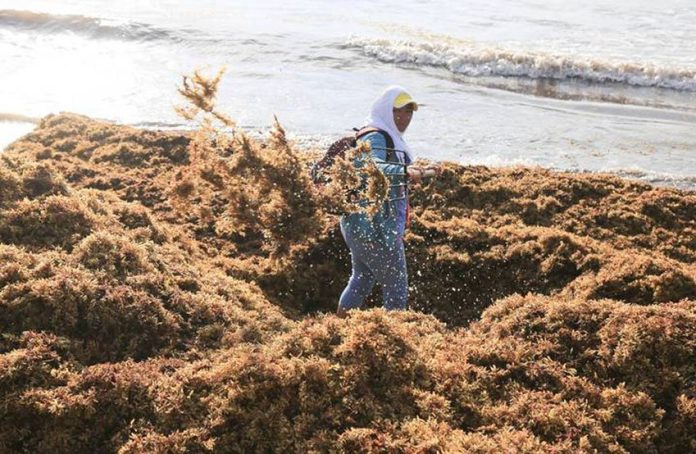The government of Quintana Roo has declared a state of emergency in order to access funds to deal with the large amounts of sargassum that are washing up on the state’s beaches.
The state described the situation as an “imminent natural disaster.”
“The arrival and decomposition of large quantities of sargassum should be addressed with a double perspective, of guaranteeing the protection and use of the natural environment, and consequently, guaranteeing the normal development of human health,” reads the decree.
The state of emergency makes it possible for federal funds to be directed toward gathering and disposing of sargassum in Quintana Roo, where eight state agencies are working together to craft a plan to address the problem.
The declaration applies to the municipalities of Lázaro Cárdenas, Isla Mujeres, Benito Juárez, Puerto Morelos, Cozumel, Solidaridad, Tulum, Felipe Carrillo Puerto, Bacalar and Othón P. Blanco.
Governor Carlos Joaquín González said the state hopes to receive 600 million pesos (US $31 million) to fund the emergency actions. He said the funds could come from local, state and federal governments, as well as the World Bank and the Inter-American Development Bank. Any revenue generated by the commercialization of the macroalgae will be used to offset the cost of the program.
Over the past few months, hundreds of cubic meters of the seaweed have been washing up on beaches in the Mexican Caribbean, causing huge losses for tourism companies and damaging coastal ecosystems.
In addition, a study by UNAM scientist Rosa Elisa Rodríguez Martínez found that some sargassum contains high levels of arsenic and heavy metals. That could complicate ideas to reuse collected sargassum as livestock feed, compost or even as an ingredient in food for human consumption.
However, the environment secretary cautioned that there’s not enough evidence to conclude that all or most sargassum washed up on beaches contains dangerous levels of contaminants.
“From what I understand, in a preliminary analysis, some heavy metals were detected, but that’s not enough to say it’s a constant,” Alfredo Arellano told Milenio. “To make an affirmation about the presence of heavy metals, we would need many more samples, from different areas.”
Source: El Sol de México (sp), Milenio (sp)
